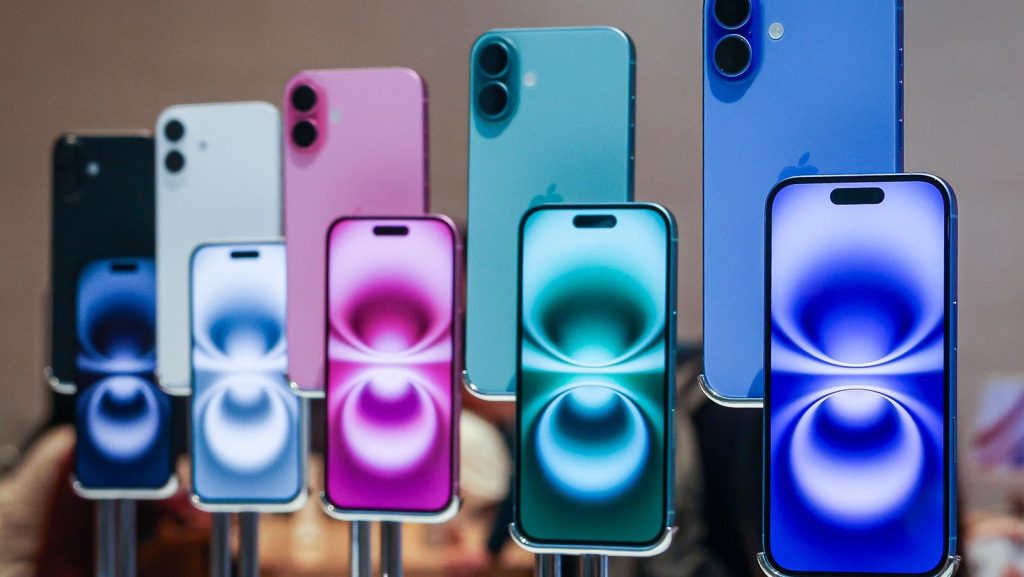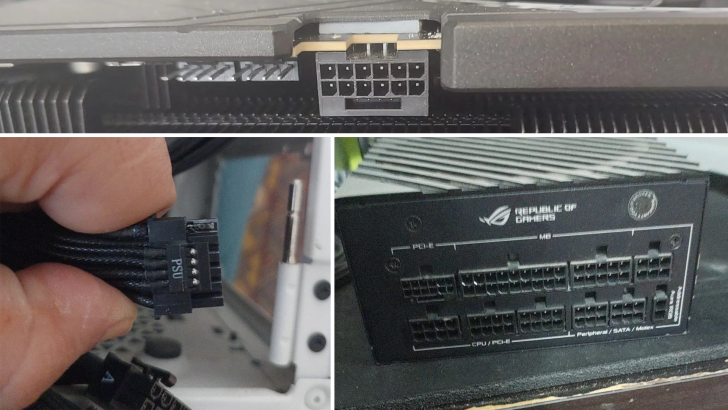iOS 18.3.1—Update Now Warning Issued To All iPhone Users – Forbes

Apple has released iOS 18.3.1, an emergency patch that fixes a single security issue that’s already … [+] being used in real-life attacks.Update, Feb. 12, 2025: This story, originally published Feb 11., now includes additional expert analysis on the flaw fixed iOS 18.3.1, other updates issued alongside it, and information on an Apple Intelligence bug that may have been introduced.Apple has released iOS 18.3.1, along with a warning to update your iPhone now. That’s because iOS 18.3.1 is an emergency patch that fixes a single security issue that’s already being used in real-life attacks.Apple doesn’t give much detail about what’s fixed in iOS 18.3.1, to give iPhone users as much time as possible to update before more attackers can get hold of the details.But what we do know is, the iOS 18.3.1 update fixes a flaw in Accessibility where a physical attack may disable USB Restricted Mode on a locked device. “Apple is aware of a report that this issue may have been exploited in an extremely sophisticated attack against specific targeted individuals,” the iPhone maker said on its support page.Tracked as CVE-2025-24200, the issue patched in iOS 18.3.1 was reported by Bill Marczak of The Citizen Lab at The University of Toronto’s Munk School.As security researcher Josh Long writes, Apple’s USB Restricted Mode is a security feature added in iOS 11.4.1 included in all later versions of iOS and iPadOS. “USB Restricted Mode prevents locked devices from leaking data to any accessories connected to the USB-C or Lightning port,” Long says.This means that for any accessory that does more than charging to work with your iPhone or iPad, the device needs to be unlocked at the time you connect it.This helps prevent, for example, hacker tools such as Grayshift’s GrayKey from being able to break into a locked device, Long says. “Such hacker tools are mostly available to government and law enforcement agencies, but it’s possible for them to fall into the wrong hands.”The nature of this attack is further backed up by the fact that the vulnerability was reported by The Citizen Lab — an organization that investigates digital espionage against civil society.It was clear iOS 18.3.1 was coming — the update had been leaked last week, but no one knew what it contained. At the time, I speculated that it could include emergency security fixes, and it looks like I was right. Apple only released iOS 18.3 at the end of Jan., again illustrating the emergency nature of this iPhone upgrade.One thing to note about iOS 18.3.1 is, it apparently turns Apple Intelligence back on by default, even if you have turned it off when updating to iOS 18.3, according to a report on Apple-focused site 9to5Mac.There are many reasons you might not want Apple Intelligence straight away and especially by default. One of those is privacy, given that AI collects a lot of data about you. Granted, Apple has a particular focus on privacy and its AI is as secure as possible because it runs the requests it can on the device with others sent to its own Private Cloud Compute.Where ChatGPT is integrated with Siri via Apple’s partnership with OpenAI, the iPhone maker will ask before sending data off to the company. However, it’s important to note that if you allow your data to be sent to ChatGPT, OpenAI’s less stringent privacy policy applies.Developer Jeff Johnson was one of the first to experience the iOS 18.3.1 bug, which also impacts macOS 15.3.1 without the usual Skip For Now option. He points out that security researcher Will Dormann had the same issue on iOS.The issue isn’t huge, so it’s likely Apple will wait until its next round of updates to fix it. For now, once you’ve upgraded to iOS 18.3.1, go to your iPhone Settings > Apple Intelligence & Siri and toggle Apple Intelligence to off.Apart from the Apple Intelligence automatic opt-in bug, people are saying iOS 18.3.1 is running fine on their iPhones. In fact, performance is “great,” according to posters on Reddit, who have noticed some improvement compared to iOS 18.3.I updated to iOS 18.3.1 as soon as it arrived on my iPhone 16 Pro and have had no issues to far. In fact, dare I say it, my iPhone is running pretty smoothly.Alongside iOS and iPad OS 18.3.1 and iPadOS 17.7.5 Apple issued a number of updates for other devices: macOS Sequoia 15.3.1, macOS Sonoma 14.7.4, macOS Ventura 13.7.4, watchOS 11.3.1, visionOS 2.3.1.But the content of these updates remains a mystery. On its support page, the iPhone maker says each upgrade “has no published CVE entries.”This is despite the fact the company says generically that the other updates provide “important security fixes” and are “recommended for all users,” security researcher Josh Long points out.Apple assigns CVE numbers to most vulnerabilities in its products to help researchers and IT administrators track whether a specific vulnerability exists across multiple products, he says.“So if this round of updates doesn’t address any CVE-numbered vulnerabilities, why does Apple say the updates contain important security fixes? Perhaps Apple addressed other security issues — which Apple deemed too insignificant to justify assigning a CVE,” he suggests.Or, perhaps more likely, Apple just copied and pasted boilerplate text, but didn’t actually make security improvements, he says. “If anything else had changed, one might expect Apple to note some additional recognitions in its iOS and iPadOS security release notes. Because of commonalities between the code base of each OS, the absence of this section from the iOS and iPadOS security notes seems to imply a copy-paste job in the general release notes for each of this week’s Mac, Apple Watch, and Apple Vision Pro operating system updates.”Long also points out that when issuing iOS 18.3.1, Apple didn’t patch tvOS and HomePod Software audios.Apple only ever fully patches the latest macOS version, currently, macOS Sequoia, says Long. “Older macOS versions only get a subset of those patches and remain vulnerable. Therefore, staying on the latest macOS version is critically important for maintaining your security and privacy,” he advises.It’s wise to back up before updating, Long says. “Whenever you’re preparing to update macOS, iOS, or iPadOS, it’s a good idea to always back up your data before installing any updates. This gives you a restore point if something does not go as planned.”The attack fixed in iOS 18.3.1 was highly-targeted, probably affecting high-profile people such as journalists, dissidents, some businesses and government officials. If you fit into this group, update right now.Given that the flaw is already being used in attacks, it’s essential that all iOS users “immediately update to iOS 18.3.1,” Adam Boynton, senior security strategy manager EMEIA at JamfBy taking advantage of this flaw, an attacker could “obtain full admin access to the device, enabling them to impersonate the owner and execute any software on their behalf,” he warns.However, according to Apple’s advisory, this is not a remotely executable vulnerability — which makes it more difficult to actually perform the attack as you would have to be physically with the iPhone, Boynton says. “The attacker would most likely need physical control of the user’s device to disable USB Restricted Mode on a locked device. As this is a sophisticated, physical attack, it is likely to target select high-value individuals.”Even so, Boynton “strongly recommends that all users update their Apple devices to iOS 18.3.1.”“Keeping devices up to date with the latest patches is one of the most effective ways to safeguard against attackers,” Boynton says.Apple’s iOS 18.3.1 is available for the iPhone XS and later, iPad Pro 13-inch, iPad Pro 12.9-inch 3rd generation and later, iPad Pro 11-inch 1st generation and later, iPad Air 3rd generation and later, iPad 7th generation and later, and iPad mini 5th generation and later. If you have one of these devices, you should update now to protect your iPhone or iPad from attacks.Apple issued iOS 18.3.1 alongside iPadOS 17.7.5, but this is only available for the iPad Pro 12.9-inch 2nd generation, iPad Pro 10.5-inch, and iPad 6th generation. There is no iPhone update for older iPhones which could be because they are not impacted, but as far as I am aware, Apple is not updating iOS 17 for this who simply want to choose to stay on the older operating system.With the flaw fixed in iOS 18.3.1 being used in real-life attacks, it’s essential that you update your iPhone now to keep it safe. You know what to do. Go to your Settings > Software Update and upgrade your iPhone to iOS 18.3.1.One Community. Many Voices. Create a free account to share your thoughts. Our community is about connecting people through open and thoughtful conversations. We want our readers to share their views and exchange ideas and facts in a safe space.In order to do so, please follow the posting rules in our site’s Terms of Service. We’ve summarized some of those key rules below. Simply put, keep it civil.Your post will be rejected if we notice that it seems to contain:User accounts will be blocked if we notice or believe that users are engaged in:So, how can you be a power user?Thanks for reading our community guidelines. Please read the full list of posting rules found in our site’s Terms of Service.



